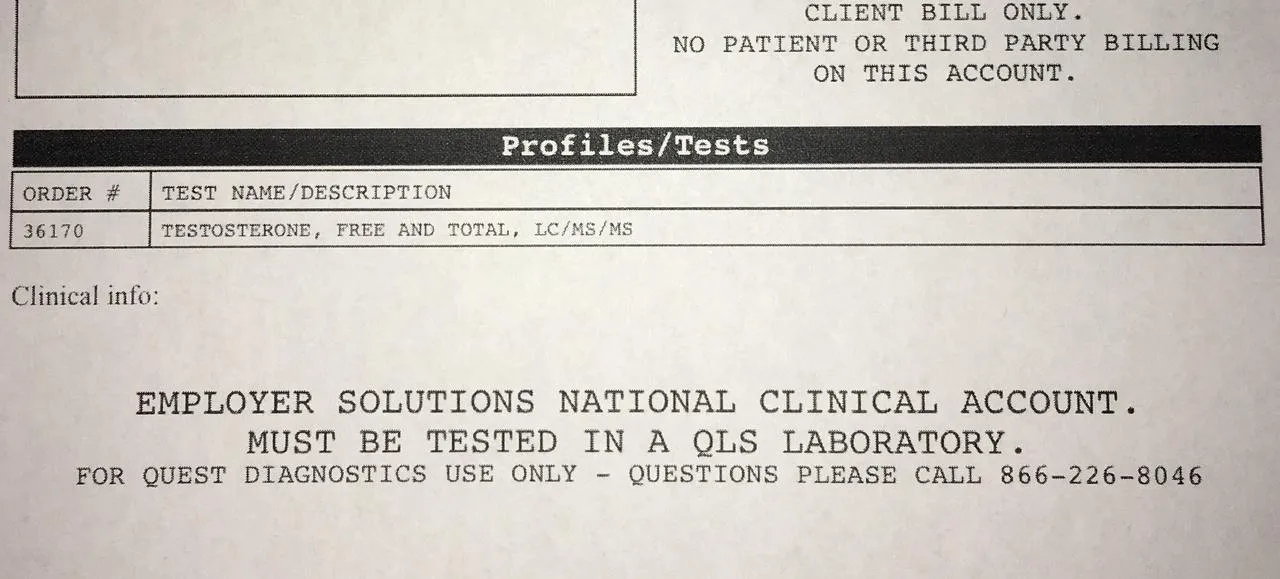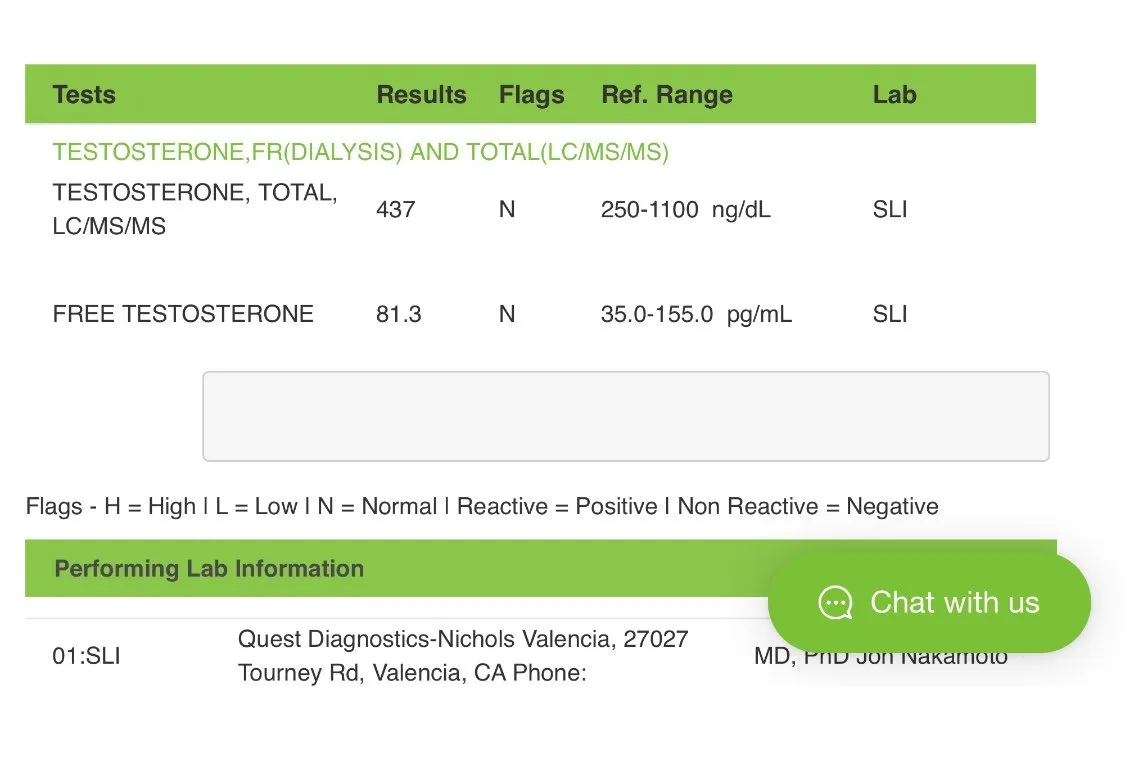These results serve as a baseline to determine if weight training, diet additions, and over-the-counter supplements can increase a man's endogenous testosterone levels.
Here's the first measure, blood draw taken at a physicians' office, on November 30:
Here's the second measure, taken through the privately owned, publicly accessible, Personalabs.com, on February 15th:
Eleven weeks between measurements, with a normal range (for me) of 426 - 437.
The next level will be measured 18 weeks later, on June 21st.
The dietary and weight training protocols started at the beginning of April, no joke 😉
That's 12 weeks.
The purpose of this study is to work through the 'bro-science' that's littering the internet.
The weakness in this study is the inability to determine the sole causal agents of change (assuming an increase in testosterone).
The STRENGTH in this study, despite an
N = 1, is the incredibly curious nature of your author.
Here we'll have actual, definitive evidence if these reasonable changes in lifestyle can make men's lives better from a hormonal perspective.
Higher testosterone levels within healthy, normal limits lead to many subjective benefits:
- Increased energy levels,
- Elevated mood,
- Larger muscle mass and strength,
- Greater bone density,
- Higher confidence and motivation
For the record, I'm good on all counts 👍
I'll also be 43 years old at the time of the blood test in June.
Testosterone starts to drop off when men hit their 30's.
Staying healthy and powerful is important to me. I'd like to keep it that way...
We now have a baseline, with full details on the what, and the hopeful why, on taking the foods and supplements to be described in future posts.
CAN men realize a higher testosterone level with these measures?
In three months, we'll find out!
Thank you everybody for reading!
My obligation to YOU, and your interest in these results, inspire me to do my best.
Thank you 🙇


